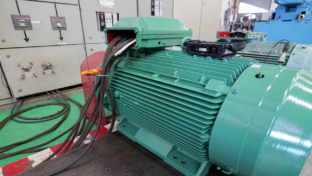
![]() This course covers the comprehensive understanding of motor design and control. It starts with the basic concept of power conversion in motors, explaining how electrical power is transformed into mechanical power. For instance, it explains how a motor draws current when supplied with a certain voltage, resulting in power measured in watts. The course then delves into the principles of torque production in motors, exploring the role of various components like magnets, current, area, and number of turns in optimizing motor design. It further discusses the intricacies of different types of motors, including the Permanent Magnet Direct Current (PMDC) motor, the Permanent Magnet Synchronous Motor (PMSM), and the Internal Permanent Magnet Synchronous Motor (IPMSM). The course also covers the fundamental concepts of torque, speed, and back electromotive force (EMF) in motors, explaining how changes in flux result in the production of an electromotive force or voltage. It concludes with the principles of motor control, focusing on electric vehicles, and the fundamental concepts of Alternating Current (AC) and Direct Current (DC) in the context of motor control.
This course covers the comprehensive understanding of motor design and control. It starts with the basic concept of power conversion in motors, explaining how electrical power is transformed into mechanical power. For instance, it explains how a motor draws current when supplied with a certain voltage, resulting in power measured in watts. The course then delves into the principles of torque production in motors, exploring the role of various components like magnets, current, area, and number of turns in optimizing motor design. It further discusses the intricacies of different types of motors, including the Permanent Magnet Direct Current (PMDC) motor, the Permanent Magnet Synchronous Motor (PMSM), and the Internal Permanent Magnet Synchronous Motor (IPMSM). The course also covers the fundamental concepts of torque, speed, and back electromotive force (EMF) in motors, explaining how changes in flux result in the production of an electromotive force or voltage. It concludes with the principles of motor control, focusing on electric vehicles, and the fundamental concepts of Alternating Current (AC) and Direct Current (DC) in the context of motor control.
-
Cost: FREE
- Course Duration: 4-6 HOURS
- Skill Level: Intermediate
- Skills Gained: EV performance, torque production, types of motors, EMF
No reviews available for this learning resource.









